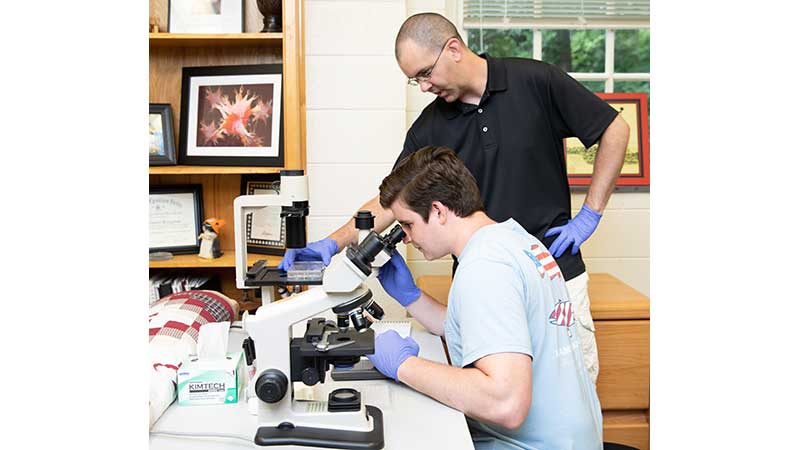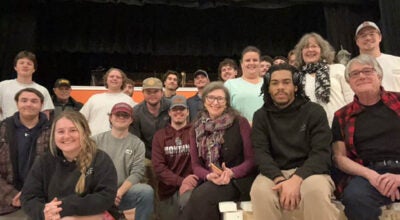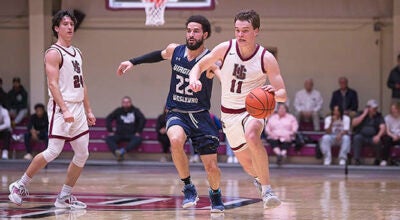Invaluable experience gained amid the cancer fight
Published 3:23 pm Thursday, September 6, 2018

- Hampden-Sydney College Elliott Associate Professor of Biology Dr. Kristian M. Hargadon, standing, and H-SC senior Corey Williams conduct research. Hargadon, Williams and senior Coleman Johnson recently published a review article on cancer immunotherapy in the journal International Immunopharmacology. (Photo courtesy of Hampden-Sydney College)
A Hampden-Sydney College (H-SC) professor and two of his students recently contributed to work being done in connection with what has been called one of the greatest breakthroughs in cancer therapy history.
An H-SC press release cited that Elliott Associate Professor of Biology Dr. Kristian M. Hargadon and two of his research students, seniors Corey Williams and Coleman Johnson, recently published a review article on cancer immunotherapy in the journal International Immunopharmacology.
The review article was entitled “Immune Checkpoint Blockade Therapy for Cancer: An Overview of FDA-approved Immune Checkpoint Inhibitors,” and the article highlights the emerging field of checkpoint blockade therapy that has revolutionized the treatment of many cancer types in recent years. Designed to “release the brakes” that inherently limit the strength and duration of natural immune responses, checkpoint blockade therapy enables many patients to achieve long-term anti-tumor immune responses capable of eradicating their disease, officials stated.
Hargadon said that checkpoint blockade therapy “has been heralded as one of the greatest breakthroughs in the history of cancer therapy. In many cases, even stage III/IV cancer patients have experienced complete remissions, and although some of the trials have been underway for only a few years, a large percentage of these patients have yet to relapse. While oncologists are wary of using the word ‘cure’ to describe these cases, the duration of patient responses to these therapies is unprecedented, and there is great optimism about this form of immune therapy in the cancer research community.”
“Corey and Coleman have worked in my lab for over a year and a half studying the basic biology of melanoma progression, and the opportunity to analyze trial outcomes for checkpoint blockade therapies gave both of these students critical insights into the clinical world they will soon enter,” Hargadon said. “As doctors-to-be — both have been accepted to the (Virginia Commonwealth University) School of Medicine — Corey and Coleman now have an appreciation for the impact that can be made by translating research findings from the laboratory to the clinic.”
Williams and Johnson will continue their work on factors that promote tumor immune evasion during their senior year.
College officials also noted that in addition to appearing in a regular issue of International Immunopharmacology, Hargadon’s article will also be featured in a special issue on “Cellular Therapeutics in the Context of Immunopharmacology.”




